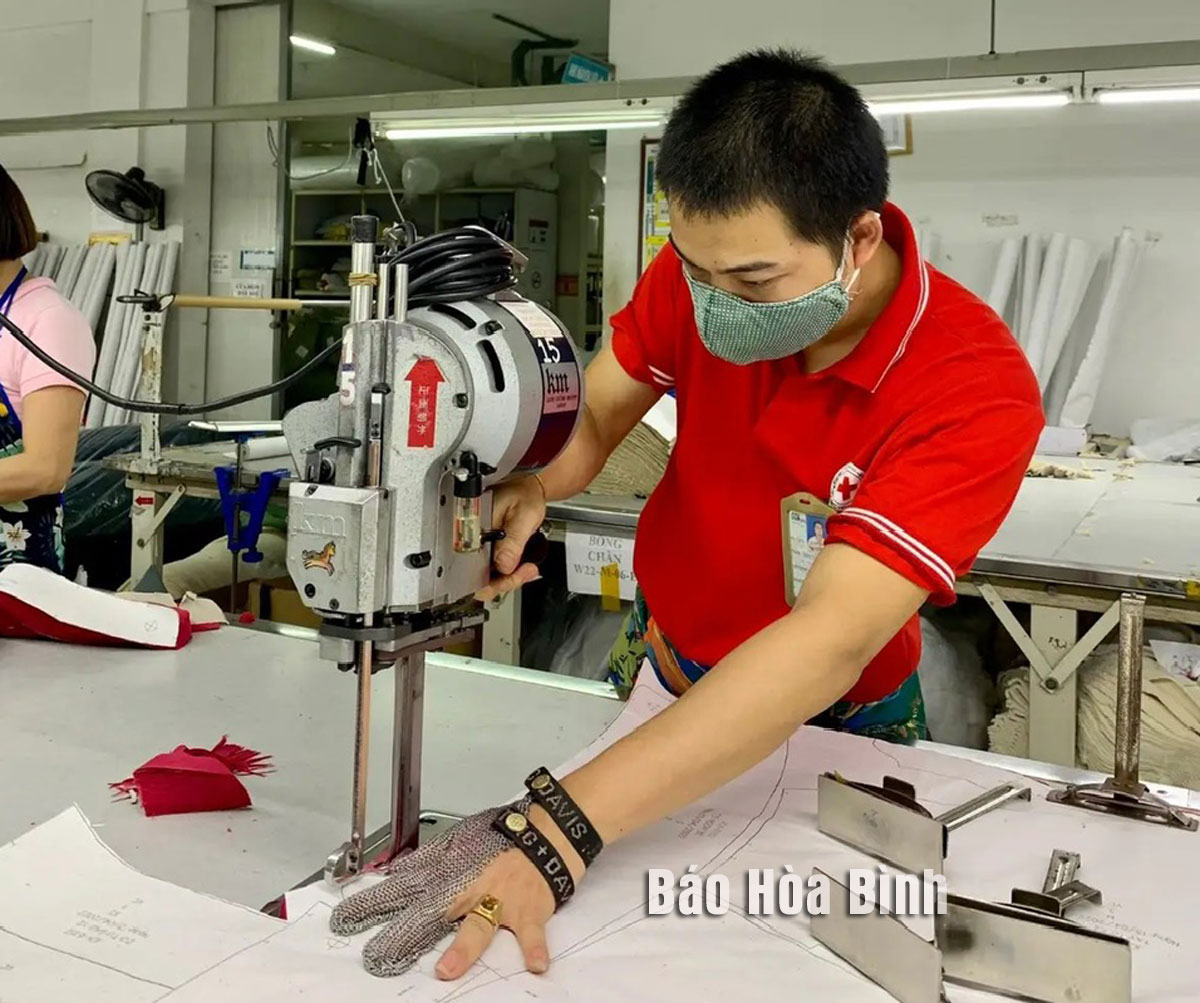
According to the report of the Provincial People's Committee, from the beginning of the year to the end of October, in the whole province there have been 45 off-budget capital investment projects the investment policies of which has been approved with a total registered investment capital of about 20,000 billion VND. There have been 760 projects in the provincen so far; there are 36 foreign direct investment projects with a total registered capital of about 608 million USD and 724 domestic investment projects with a total registered capital of about 275,000 billion VND.

GGS Vietnam Co., Ltd. is a 100% foreign-invested
enterprise, producing and doing business effectively in the industrial park of
the left bank of Song Da (Hoa Binh City).
There are 5 new projects investing in the industrial
parks. The revenue from the production and business activities of the
enterprises in the industrial parks is estimated at 22,000 billion VND,
increasing 6% compared to that of the same period last year, reaching 100% of
the assigned plan; creating new jobs for 1,300 local people.
In addition, since the beginning of the year, there
have been 440 newly registered enterprises with a total registered capital of
5,200 billion VND in the whole province; Compared to the same period last year,
the number of new businesses decreased by 8.71%, the registered capital
decreased by 45.2%. There are 200 enterprises registered to temporarily suspend
production and business activities; 950 businesses temporarily suspended
operations without registration or awaiting dissolution; 160 businesses
returned to the market. Accumulated up to now, it is estimated to have 3,500
businesses operating in the economy in the whole province. The business
innovation arrangement continues to be implemented as planned.
Hoa Binh province is undergoing a dynamic transformation amid Vietnam’s national digital transition. Building on Poliburo’s Resolution No. 57-NQ/TW on breakthroughs in science, technology, innovation, and national digital transformation, the province has rolled out a wide range of practical action plans. A standout initiative is the "Digital Literacy for All” movement, an effort to ensure that no one is left behind in the digital era.
Hoa Binh province is undergoing a dynamic transformation in the wake of the national digital transformation movement. Building on Resolution No. 57-NQ/TW of the Politburo on breakthroughs in science, technology, innovation, and national digital transformation, the province has implemented a wide range of practical action plans. A standout initiative is the "Digital Literacy for All” movement ambitious effort to ensure that no one is left behind in the digital age.
With a spirit of unity and proactive problem-solving, the Party Committee, the government and the people of Dong Lai Commune (Tan Lac District) have made great strides in implementing the resolutions of the 24th Party Congress of the commune for the 2020 - 2025 term. Focusing on leadership and practical actions, the commune has brought the Party’s resolutions into daily life, creating strong impacts and pushing the local development forward.
Amid the nationwide push for digital transformation, young people in Hoa Binh Province are stepping up as dynamic pioneers, applying technology to enhance Youth Union operations and expand the reach of youth-led initiatives. Through creativity and adaptability, Youth Union organizations at all levels have introduced a series of practical solutions, contributing to modern governance and community development.
In recent years, An Nghia commune, located in Lac Son district, has stepped up administrative reform, focusing on improving the quality and efficiency of its single-window service unit for receiving and processing administrative procedures. These improvements have helped create favourable conditions for local residents and organisations to handle administrative procedures, contributing to the commune’s broader socio-economic development.
The Prime Minister-approved master plan to develop the multi-use value of forests ecosystems through 2030, with a vision to 2050, aims to improve the management and sustainable use of forest resources, create jobs, increase incomes, and improve the living standards of ethnic minorities, people in mountainous and remote areas, forest workers and those living near forests.



